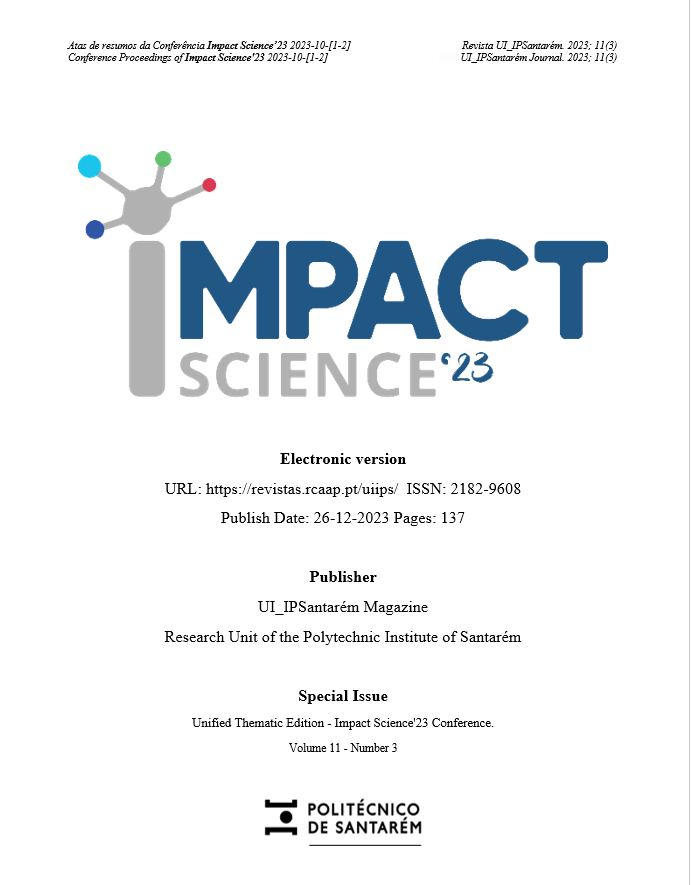The impact of Mediterranean Diet in Cancer: a narrative review
DOI:
https://doi.org/10.25746/ruiips.v11.i3.32448Keywords:
Mediterranean diet, cancerAbstract
According to Pordata, Statistics of Portugal and Europe, approximately 27 thousand people died from malignant tumors in the last year, being one of the main causes of death worldwide. In many studies conducted in recent years, it has been stated that one of the causes of cancer can be excess weight and malnutrition. The Mediterranean Diet (MD) is a traditional dietary pattern rich in nutrients, vitamins, antioxidants, and balanced with a source of unsaturated fat and reduced consumption of red meats. This lifestyle can reduce the risk of heart diseases, diabetes, cancer, and promote a healthier life.
The present work is a narrative review of studies conducted in the last five years, aiming to highlight the influence that the Mediterranean diet has on patients diagnosed with cancer. The research was carried out in March 2023, using the Pubmed database, with the keywords: "(Mediterranean diet" (Title)) AND (cancer (Title)), resulting in 83 articles. Review articles, comments, opinion pieces, and articles that did not address the Mediterranean diet or cancer were excluded, leaving 19 articles for analysis. The analyzed articles included studies on the influence of MD on the following cancers: breast (6), prostate (4), bladder (2), thyroid (2), colon (2), stomach and esophagus (3). Breast cancer seems to be more common in overweight and post-menopausal women. Adherence to the MD reduces adiposity and BMI, resulting in a lower risk of breast cancer. Regarding other cancers, in general, the higher the adherence to the MD, the lower the risk of cancer development. In some cases of established disease, symptoms are milder, and disease progression is slower in patients with higher adherence to the MD.
Downloads
Published
How to Cite
Issue
Section
License
Copyright (c) 2023 Paula Pinto, Vanessa Roque, Rui Jorge

This work is licensed under a Creative Commons Attribution-NonCommercial-NoDerivatives 4.0 International License.
Authors publishing in this journal agree to the following terms:
Authors retain copyright and grant the journal the right of first publication, with the article simultaneously licensed under the Creative Commons Attribution License that allows sharing of the work with acknowledgement of authorship and initial publication in this journal.
Authors are permitted to enter into additional contracts separately for non-exclusive distribution of the version of the article published in this journal (e.g., publish in an institutional repository or as a book chapter), with acknowledgment of authorship and initial publication in this journal.
Authors have permission and are encouraged to publish and distribute their work online (e.g., in institutional repositories or on their personal webpage) at any point before or during the editorial process, as this may generate productive changes, as well as increase the impact and citation of the published work.





